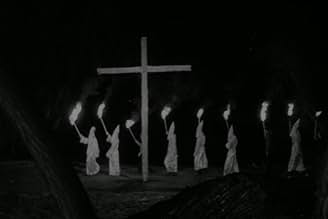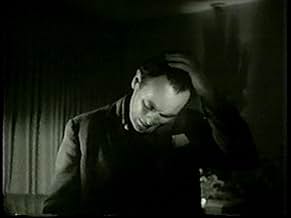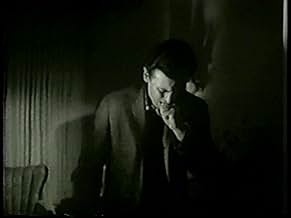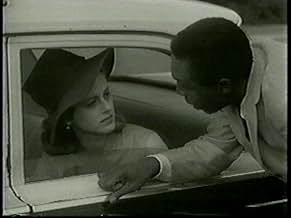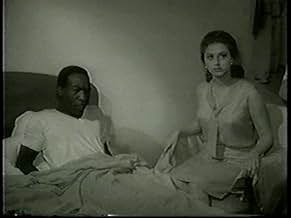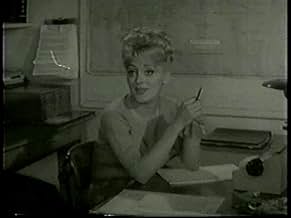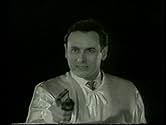Agrega una trama en tu idiomaAfter a black man's daughter is killed by the KKK, he seeks revenge by becoming a Klansman.After a black man's daughter is killed by the KKK, he seeks revenge by becoming a Klansman.After a black man's daughter is killed by the KKK, he seeks revenge by becoming a Klansman.
James McEachin
- Lonnie
- (as Jimmy Mack)
W. McLennard
- Wallace
- (as William McLennard)
R.L. Armstrong
- Jenkins
- (as Tex Armstrong)
- Dirección
- Guionistas
- Todo el elenco y el equipo
- Producción, taquilla y más en IMDbPro
Opiniones destacadas
This film begins in Los Angeles with a black jazz musician by the name of "Jerry Ellsworth" (Richard Gilden) learning that his young daughter has just been killed by members of a racist organization in the small town of Turnerville, Alabama. Seeking revenge upon the people that committed this act, he immediately boards a flight to Turnerville where he hopes his light-skinned complexion will allow him to masquerade as a white man long enough for him to infiltrate the local chapter of the KKK. What he doesn't know, however, is that his white girlfriend "Andrea" (Rima Kutner) and his good friend "Lonnie" (James McEachin) have followed right behind him and their appearance creates unforeseen difficulties which endangers his extremely hazardous plan. Now, rather than reveal any more, I will just say that this was a fairly interesting film which was hindered somewhat by the rather low-budget production values and mediocre acting of all concerned. It does, however, serve as a decent precursor to the blaxploitation films which followed a few years later and for that reason I have rated this film accordingly. Average.
After a black man's daughter is killed by the KKK, he seeks revenge by becoming a Klansman.
This film can be dismissed as an exploitation film, and maybe it should be, but I personally thought it was a strong social commentary on color and race in America. Definitely during the 1960s, but probably even to some degree today (2013).
The real honor of this film has to go to the actor who played Jerry, because he had to balance between looking black and looking white and making this believable. He succeeded. I actually do not know if he was completely white or if he was lighter-skinned and black. I could look it up, but I think that his character makes the point -- it does not matter. If he can be treated as either, then race should not matter.
This film can be dismissed as an exploitation film, and maybe it should be, but I personally thought it was a strong social commentary on color and race in America. Definitely during the 1960s, but probably even to some degree today (2013).
The real honor of this film has to go to the actor who played Jerry, because he had to balance between looking black and looking white and making this believable. He succeeded. I actually do not know if he was completely white or if he was lighter-skinned and black. I could look it up, but I think that his character makes the point -- it does not matter. If he can be treated as either, then race should not matter.
Though I never heard of any of the actors except the excellent James McEachin, nearly every single player gives a good to excellent performance.
It starts rather badly, and my thoughts were negative about the director, Ted V. Mikels, whose work is apparently mostly exploitative, and the nominal lead, Richard Gilden. But after a few more scenes, everything shifts into a higher gear and actors and director present us with a good movie.
At this writing, March of 2019, the film is 53 years old. Most of the worst aspects of the problem presented by the story have receded. While Ku Klux Klan and similar organizations still exist, they are generally discounted by most of the rest of the population.
Except: the U.S. "news" media and other Democrats and other left-collectivists would have us believe that every problem in these United States derives from "racism" and that most people, especially those who don't buy into the left-collectivist belief system, are "racists."
In addition, among the left-collectivists, including the "news" media, there is a sickening and disgusting emphasis placed on group identity, which is, in fact, what is wrong with such groups as the KKK, but is somehow accepted when it's from Democrat candidates.
In fact, each of us is an individual, no matter what our skin color. And one point made in this film is that the protagonist, with one black parent, looks white enough to be allowed membership in the Klan.
Not stressed in this movie is the notion that one's skin color or ethnicity cannot lead to any particular belief system. But it's a fact.
Yes, one's culture, one's neighbors, one's schooling can certainly bend a person's thinking, but not that person's skin color, not race or ethnicity.
The premise of this mostly very well-done motion picture is excellent, it's timely, even after the decades since its premiere. The acting is first class, its picture of the rituals of the KKK certainly look real, almost, in spots, like a documentary.
I highly recommend this movie, under whichever title, even if the ending is a bit ambiguous. Very, very well done.
It starts rather badly, and my thoughts were negative about the director, Ted V. Mikels, whose work is apparently mostly exploitative, and the nominal lead, Richard Gilden. But after a few more scenes, everything shifts into a higher gear and actors and director present us with a good movie.
At this writing, March of 2019, the film is 53 years old. Most of the worst aspects of the problem presented by the story have receded. While Ku Klux Klan and similar organizations still exist, they are generally discounted by most of the rest of the population.
Except: the U.S. "news" media and other Democrats and other left-collectivists would have us believe that every problem in these United States derives from "racism" and that most people, especially those who don't buy into the left-collectivist belief system, are "racists."
In addition, among the left-collectivists, including the "news" media, there is a sickening and disgusting emphasis placed on group identity, which is, in fact, what is wrong with such groups as the KKK, but is somehow accepted when it's from Democrat candidates.
In fact, each of us is an individual, no matter what our skin color. And one point made in this film is that the protagonist, with one black parent, looks white enough to be allowed membership in the Klan.
Not stressed in this movie is the notion that one's skin color or ethnicity cannot lead to any particular belief system. But it's a fact.
Yes, one's culture, one's neighbors, one's schooling can certainly bend a person's thinking, but not that person's skin color, not race or ethnicity.
The premise of this mostly very well-done motion picture is excellent, it's timely, even after the decades since its premiere. The acting is first class, its picture of the rituals of the KKK certainly look real, almost, in spots, like a documentary.
I highly recommend this movie, under whichever title, even if the ending is a bit ambiguous. Very, very well done.
What can be said? This movie is as disturbing now as it was when it was made. But the acting is so irregular. Sometimes it's comically bad which makes it extremely uncomfortable. The ending is also disappointing.
Oh, this film has flaws all right: Sloppy edits, phony day-for-night, zero budget, and a lot of bad acting. The ending is a bit syrupy as well. But it takes up fascinating questions and plunges headlong into the dark side of American racism, showing KKK meetings, burning crosses, and violence. It treatment of the race question reminds me of the Roger Korman film "The Outsider," in which William Shatner plays a white racist, but in this case a light-skinned black man goes under cover to join the ranks of prejudice. This film's combination of thematic boldness and slipshod execution makes it wonderfully horrible. Or horribly wonderful, I can't figure out which.
¿Sabías que…?
- TriviaMax Julien (Raymond) and Whitman Mayo (Alex) are both members of Kappa Alpha Psi Fraternity Inc.
- ConexionesFeatured in The Wild World of Ted V. Mikels (2008)
- Bandas sonorasThe Black Klansman
By Tony Harris
Selecciones populares
Inicia sesión para calificar y agrega a la lista de videos para obtener recomendaciones personalizadas
- How long is The Black Klansman?Con tecnología de Alexa
Detalles
Taquilla
- Presupuesto
- USD 80,000 (estimado)
- Tiempo de ejecución1 hora 28 minutos
- Color
- Mezcla de sonido
- Relación de aspecto
- 1.85 : 1
Contribuir a esta página
Sugiere una edición o agrega el contenido que falta

Principales brechas de datos
By what name was The Black Klansman (1966) officially released in India in English?
Responda
